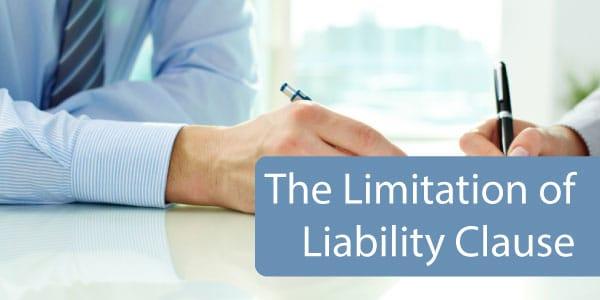Limitation of liability clauses have become more common in construction industry contracts over the past 10-15 years. Such clauses are quite common in design contracts. It is also common for a limitation of liability clause to refer to multiple potential causes of action under which one party’s liability will be capped, not limited to a breach of contract claim.
Consequential damage waiver clauses have also been part of the industry ever since the decision in Perini Corp. v. Greate Bay Hotel & Casino, Inc., when a contractor was found liable for lost profits after late completion of a casino in Atlantic City. (Against a potential fee of $600,000, the contractor was found responsible for $14.5 million in lost profits.)
The Massachusetts Supreme Judicial Court has held, though, that a limitation of liability clause will not bar a claim that one party acted in an unfair and deceptive manner. The decision, arising from a real estate lease transaction, would apply to a design or construction contract. (Indeed, the ACEC and the Massachusetts AIA chapter submitted amicus briefs.)
The clause in question provided that the landlord would not be liable for “any speculative or consequential damages caused by the Landlord's failure to perform its obligations under [the] Lease.” (The Mass. SJC refers to this as a “limitation of liability” clause, but the language could also operate as a prohibition against consequential damages.)
Per the decision, the underlying facts included repeated attempts by the landlord – after the lease had been signed – to coerce the tenant into further concessions. After a bench trial between the parties, the trial judge held that the landlord had acted in an unfair and deceptive manner, in multiple ways and in violation of the Massachusetts fair trade practice statute, Mass. Gen. Laws c. 93A.
The critical question was whether the lease clause, quoted above in part, barred or capped the tenant’s claim against the landlord. The Massachusetts high court held that it did not:
The question then becomes whether the consequential damages [the tenant] sought to recover were covered by the limitation of liability provision at issue, and if so, whether such a provision was enforceable as a matter of law. We conclude that even if the provision encompassed the conduct at issue, it was unenforceable as a matter of law.
The court noted that the tenant’s damages, for the landlord’s actions in breach of the lease, would ordinarily be precluded by the limitation of liability language. It also noted that claims for breach of c. 93A were intertwined with claims for breach of the lease, and that it could be difficult to separate the consequential damages arising from one cause of action (breach of the lease) from another (violation of c. 93A).
But the court held: “we need not unravel the interconnected causes of the delay damages [the tenant] sustained, because we conclude that a limitation of liability provision provides no protection for defendants who willfully or knowingly engage in unfair or deceptive conduct . . .”
The court explained its decision:
Because multiple damages under c. 93A “serve the twin ‘goals of punishment and deterrence,’” . . . , enforcement of a limitation of liability provision that would allow a defendant in a c. 93A, § 11, action to immunize itself in advance from liability for unfair or deceptive conduct that is done willfully or knowingly would do violence to the public policy protected by the statute, . . . Such willful and knowing misconduct is not entitled to contractual protection from c. 93A, § 11, liability. (citations omitted)
Finding that the landlord had also acted in a knowing and willful manner, the court doubled the tenant’s damages under c. 93A, upholding a judgment in excess of $12 million.
Those who would rely on a limitation of liability clause, or a waiver of consequential damages, would be well-informed to note that these contract limitations will not cap or bar liability for unfair and deceptive acts.
The case is H1 Lincoln, Inc. v. South Washington Street, LLC, 2022 Mass. LEXIS 41 (Jan. 24, 2022).
Original Source: https://www.commonsenseconst.com/construction/limitation-of-liability-and-consequential-damage-waiver-clause-did-not-bar-claim-for-bad-faith/

Join our community to interact with posts!